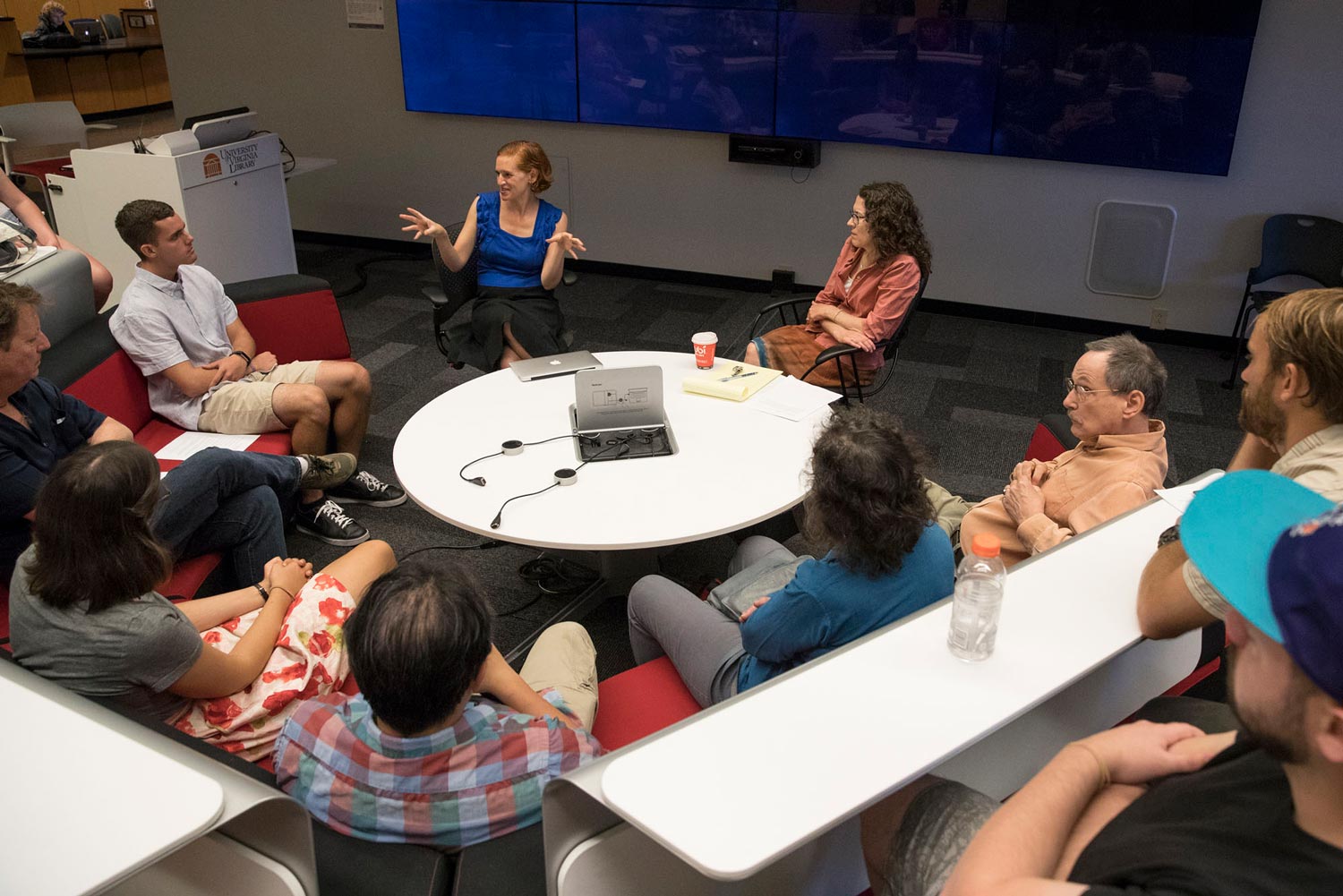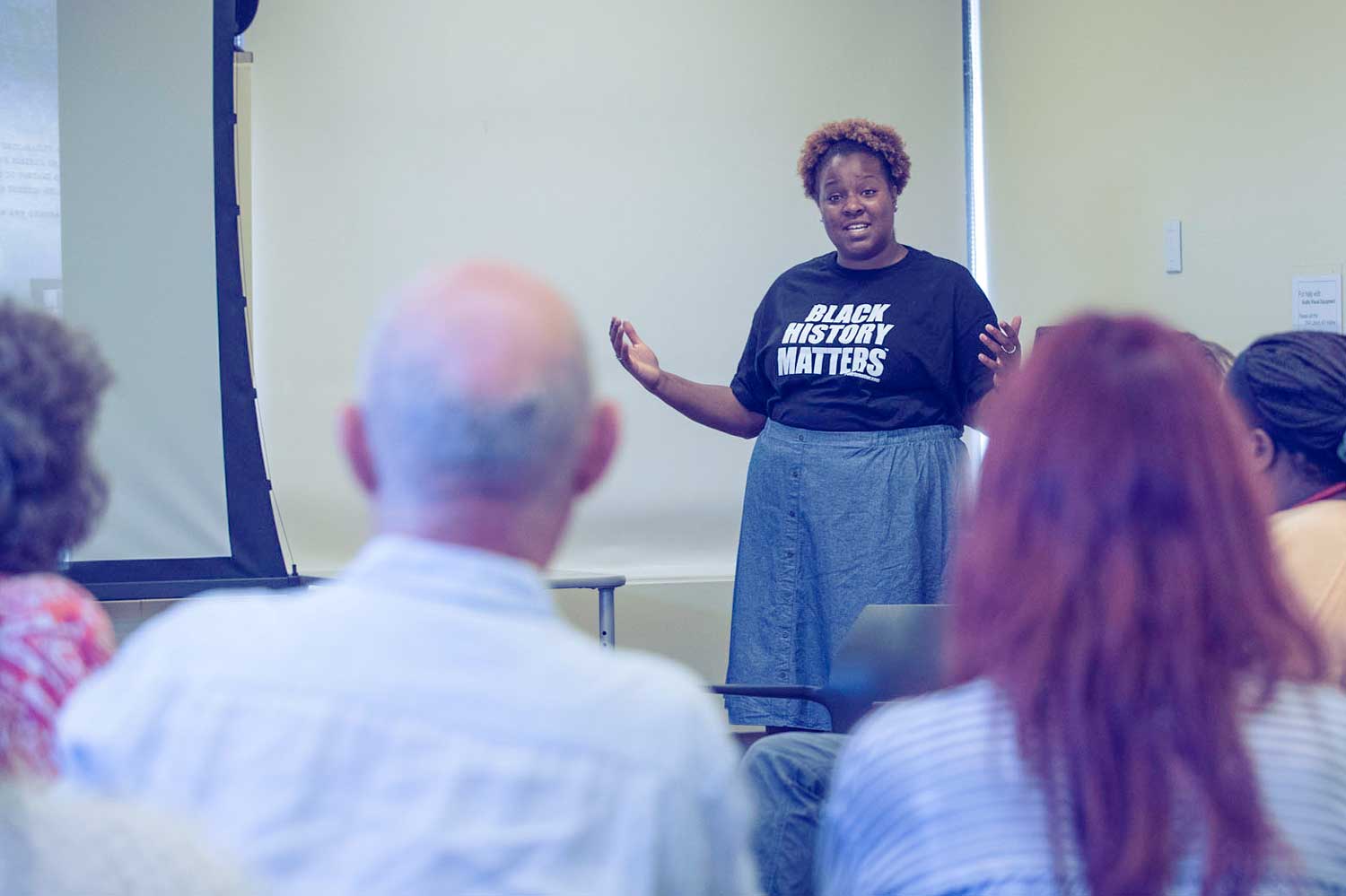On Saturday, the University of Virginia will host a series of discussions designed to further education and dialogue around issues brought to the forefront in Charlottesville – and across the country – after the white supremacist rallies here on Aug. 11 and 12.
The “Dialogues on Race and Inequity” – which will include more than 30 discussion sessions and four film screenings – were originally scheduled for Aug. 12, but were canceled due to safety concerns after violence at that day’s rally in downtown Charlottesville.
Saturday’s programming begins with an 11 a.m. screening of “White Like Me,” a film exploring racism in modern America, in the Harrison Small Auditorium, and continues with discussion sessions from noon to 5 p.m. in various libraries on Grounds. All sessions are free and open to the public.
A full schedule of events and information on parking and transportation is available here.
“Faculty, students and staff were enthusiastic about having these discussions, and we wanted to honor that commitment even after the original programming had to be canceled,” Associate Provost for Outreach Louis Nelson said.

Rachel Wahl, an assistant professor in the Curry School of Education, led a discussion on activism before sessions were suspended on Aug. 12. (Photo by Dan Addison, University Communications)
Many faculty members and on-Grounds organizations have long been involved in research and other work addressing relevant issues, and Nelson solicited their input both before and after the events of Aug. 11 and 12.
Topics to be addressed Saturday include constitutional rights and citizenship, community dynamics and race relations, local history and a variety of other topics relevant to civil democracy. Presenters encompass a wide range of faculty members spanning disciplines across the University, as well as organizations like the Minority Rights Coalition, the LGBTQ Center, the Maxine Platzer Lynn Women’s Center, the Virginia Foundation for the Humanities and DREAMers on Grounds.
Four films will also be screened in the Harrison Small Auditorium in the Albert and Shirley Small Special Collections Library: “White Like Me” (11 a.m.); “I Am Not Your Negro,” a 2017 film based on James Baldwin’s book about the lives and assassinations of Medger Evers, Malcolm X and the Rev. Dr. Martin Luther King Jr. (12:30 p.m.); “That World is Gone: Race and Displacement in a Southern Town,” sharing the story of Charlottesville’s Vinegar Hill neighborhood (3:30 p.m.); and “An Outrage,” a documentary on lynching in America (4:10 pm.).
Some discussions will focus on the First Amendment and its role in current events. For example, Dean of Students Allen Groves, who earned his law degree at UVA, and Dean of Libraries and English professor John Unsworth, who earned his Ph.D. in English from UVA, will lead a session on recent books about free speech, while School of Law professor Douglas Laycock will discuss the protections afforded by the constitutional rights of freedom of speech and assembly.
Other sessions will delve into local history, such as a discussion on the history of the Ku Klux Klan in Charlottesville led by history professor John Edwin Mason. Still more sessions will explore strategies for improving diversity and equity in fields like education or health care.
Nelson hopes that many local community members will attend, in addition to UVA students, faculty and staff.

“As we did on Aug. 12, we are extending an open invitation to the Charlottesville community to attend these events,” Nelson said. “To be truly effective, these issues and conversations must not only engage the UVA community, but also bleed past the walls of the University to put us in direct conversation and collaboration with our neighbors, in Charlottesville and beyond.”
Sessions will be held in Clemons or Alderman libraries, or in the Harrison Small Auditorium in the Albert and Shirley Small Special Collections Library. Find a full schedule, a map and parking information on the Executive Vice President & Provost webpage.
Media Contact
Article Information
September 19, 2017
/content/aug-12-programming-race-and-inequity-rescheduled-weekend

